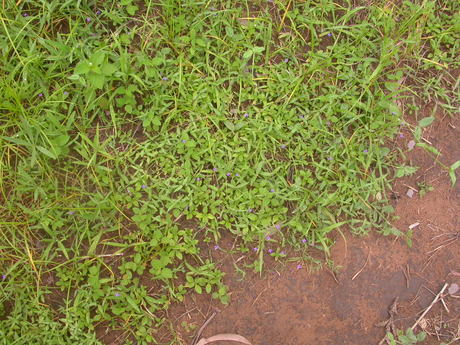Plant enzyme to make better medicines

Australian researchers have identified and produced a key enzyme, found an in African plant, which can transform linear peptides into robust, chemically stable circular ones for use in pharmaceutical drug design.
Published in the journal Nature Communications, the research has been led by La Trobe University research fellow Dr Karen Harris under the supervision of biochemist Professor Marilyn Anderson and University of Queensland chemist Professor David Craik.
Circular peptides are a class of proteins exceptionally resistant to chemicals, enzymes and heat because of their unique structural scaffold. Dr Harris says they are less likely to be broken down by gastric acids than linear peptides and can react more specifically with target molecules with fewer side effects.
“Our enzyme comes from the original African plant in which the first circular peptides were discovered more than 40 years ago,” Dr Harris said, referring to the plant Oldenlandia affinis. “That plant was used by women in the Congo in tea to accelerate childbirth.”
Some early applications of the peptides, Professor Anderson said, could be for cancer and obesity drugs as well as for the treatment of pain. In fact, she said, Professor Craik has already produced circular peptides that are 100 times more effective than morphine at relieving pain.
This is the first time the cyclising enzyme from this plant has been produced in bacteria and used to make circular peptides in the laboratory. According to Professor Anderson, other people have synthesised circular peptides using chemical methods.
“But that’s an expensive process with low yields,” Professor Anderson said, noting that it had not been previously possible to produce the peptides in the quantities required for clinical trials.
“The discovery of the cyclising enzyme will enable us for the first time to make enough of this circular peptide for clinical trials,” she said. “We expect clinical trials will be about five years away.”
Professors Anderson and Craik recently won the $1 million Ramaciotti Biomedical Research Award, which will be used to establish the Clive and Vera Ramaciotti Facility (CVRF) for Producing Pharmaceuticals in Plants. The CVRF will be a state-of-the-art facility to develop technologies to produce potent next-generation medicines inexpensively.
Breakthrough drug prevents long COVID symptoms in mice
Mice treated with the antiviral compound were protected from long-term brain and lung dysfunction...
Antibiotics hinder vaccine response in infants
Infants who received antibiotics in the first few weeks of life had significantly lower levels of...
Colossal announces 'de-extinction' of the dire wolf
Colossal Biosciences has announced what it describes as the rebirth of the dire wolf, which would...




